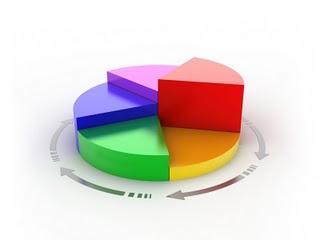Just as doctors at parties often have guests request free medical advice, search engine whiz Luke Jamieson is regularly asked for gratuitous tips about how to grab Google’s attention.
“It happens all the time,” says Luke, director of Adelaide-based website specialist DBG Technologies. “The most common question is ‘how do I get to be number one on Google?’”
Although these questions are no show-stopper for Luke as he prepares for the Christmas party season, he has compiled a Search Engine Optimisation (SEO) cheat sheet to help get websites Google-ready. DBG’s 10 SEO Tips for a Google-friendly website are:
1/ Create links that lead to your site
The best way to improve your website’s visibility for Google is with links from other sites, which deliver a double benefit of more ways for people to find your content plus improving your search rankings. Link sources include social bookmarking sites, industry forums, blog comments, local business directories, suppliers and news media websites.
2/ Create fresh relevant content – and keep refreshing it!
Ensure your site contains relevant material because search engines prioritise unique, informative content. Also, highlight key points and keep text snappy as users tend to skim read online.
3/ Make each page attractive to Google
Remember that Google ranks a web page rather than an entire website. By focussing each page around a particular keyword and theme, you have a greater chance of ranking well for that topic.
Write pages around keywords your market searches for rather than using “spammy” jargon.
4/ Promote your website through intelligent use of meta tags
Meta tags are the snippet of text you see displayed under headings in search results. Use enticing descriptive text to encourage searchers to click through to your website. Also, ensure each page on your site has a unique title and heading.
Google rewards integrity in meta tags rather than indexing them indiscriminately: Thus, it’s better to focus on one keyword per page, with meta tags aligned around a particular topic.
5/ Keep it simple for the KISS of success
Use technology to make your website work better, not just to keep up with the latest fad. Tools such as Flash! and JavaScript can make it hard for Google to find content: If you must, use it sparingly.
Even your web server location can impact your site’s Google appeal: Offshore servers can undermine the effectiveness of “local” searches.
6/ Use online tools to make sure your website is trim and terrific
Free online tools such as Google Webmaster or Yahoo SiteExplorer identify problems with your website, such as crawl errors and broken links, and let you submit an XML sitemap of your site, so search engines find all your pages.
7/ Get into the habit of regularly using website analytics
Google Analytics is a free way to track your website traffic. Stats Analysis tells you which sites refer you traffic and which keywords find your site.
As well as measuring if your SEO campaign is working, Google Analytics lets you know where to focus your efforts by monitoring user behaviour, time spent on site, the number of pages visited and which keywords resulted in inquiries.
8/ Social media participation can promote your website
Share content on news or bookmarking sites for others to read and recommend. Build a community on Twitter and Facebook, so you can instantly alert people to updates on your site with a hyperlink to content.
As well as submitting articles that use your knowledge to help people, you can also create content on your site, such as videos, that others can share socially / virally.
9/ Optimise your site’s images for SEO
Use keyword-rich captions and descriptive alternate text tags for all your images and place images near keyword-rich text.
10/ Remember – a website is more than set and forget!
Your website is not something to put online and forget: Think of it as a child that needs ongoing care. SEO is the same: Setting up your website correctly is a start toward getting good rankings but to stay ahead of your competition requires ongoing work.














